Portable Magic
Reading, for me, is entertainment and an escape from the real world. But it can also inform and stretch the boundaries of the life I live.
Currently reading




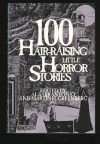





100 Hair-Raising Little Horror Stories - 70/512 pg

This anthology has been the perfect palate-cleanser between books for me. None of the stories are more than a few pages long, and it's a fun mix of classic and modern authors, with very few duds so far. I just finished stories by Henry Slesar, Richard Chizmar, Avram Davidson, and Gary Raisor. Chizmar is the only one I'd even heard of.
 6
6
Smith of Wootton Major / Farmer Giles of Ham ★★★★★

I admit I'm biased, but I loved these two short stories as much now as I did when I was a little kid just discovering Tolkien. I feel as though they represent both his love of the heroic and the mysteriously romantic nature seen in LotR, but also his affectionately scathing take on human nature seen in The Hobbit. With SoWM illustrating the first and FGoH the second. I think these would be a good intro to Tolkien for anyone hesitant to make the larger commitment to his novels.
Paperback version, found at my public library's Friends of the Library sale.
 13
13
 6
6
Fear of Flying - pg 0/480
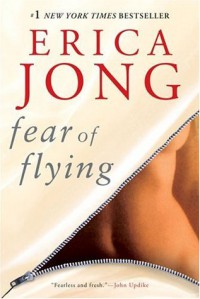
LOL book genie what are you trying to do to me? I somehow got my hands on this when I was still in elementary school and had NO IDEA what I was reading. Let's see what I make of it now...

 6
6
 2
2
Gods of Jade and Shadow (DNF) ★★☆☆☆

This was mildly interesting but there were just too much teenaged angst and too many YA tropes for me to enjoy it.
DNF at 25%
Audiobook, borrowed from my public library via overdrive.
 9
9
 9
9
Reading progress update: I've read 25%.

I don't know if I'm going to finish this. It's not bad, and mostly enjoyable, but very YA-ish and I'm not in the mood for mawkish teenaged angst.
 4
4
 4
4
Invisible Man - 29%
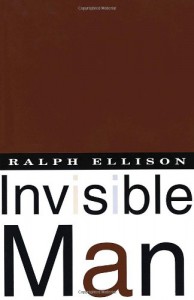
Well, OB was definitely right about this one. My attempt to read the text version was not nearly as exciting as listening to Joe Morton angrily declaiming in my ears. So I'm back to the audio, but it is slow going, because there is so much emotion that I can only take it in with very small sips.
I wish I could find a clip of him on one of the rants, but you can get an idea of his cadence and emotion in this sample of him reading Ellison's explanation of invisibility.
 3
3
 3
3
The Bungalow Mystery ★★★★☆
The third book in the series was perhaps the most exciting so far, with Nancy almost continually in peril and getting herself out of one scrape after another. As usual, the mystery depends heavily on coincidence and inconsistencies that don’t stand up to much scrutiny, but it gives Nancy plenty of opportunity to show off (modestly, of course) her smarts, her skills, and her courage.
There is a significant difference in storytelling style and characterization between the versions.
The 1930 plot and characters are kept simple and few. We are more often inside Nancy’s head as she’s working out the clues and coming to conclusions. There is a buildup of suspense, violence both actual and implied, and Nancy is far more impulsive and emotional – she gets spooked, is at times frightened, but bravely recovers and thinks things through. The 1960 version introduces many more characters, romance elements, and a far more complicated plot, but we don’t get to solve the mystery inside Nancy’s head. We are on the outside and she just tells us her conclusions along with the other characters. This Nancy is also brave, but she is almost always deliberate, cool, and collected; justifying her actions as staying within the letter of the law and as morally just.
Original 1930 text: ★★★★★
Revised 1960 text: ★★☆☆☆
Averages out to a probably over-generous ★★★★☆
Index of Posts:
ND3.1 1930 Chs 1-3 vs 1960 Chs 1-2
ND3.2 1930 Chs 4-6 vs 1960 Ch 3
ND3.3 1930 Chs 7-9 vs 1960 Chs 4&8
ND3.4 1930 Chs 9-11 vs 1960 Ch 5-7; 9-10
ND3.5 Chs 12-14 vs 1960 Ch 11-12
ND3.6 1930 Chs 14-17 vs 1960 Ch 13-14
ND3.7 1930 Chs 18-21 vs 1960 Ch 15-17
The Disappearance of Mr. Davenheim ★★★★★

Although I am really just getting to know him, I think M. Poirot may be at his best in short-story form. I love everything about him, from his arrogance to his insistence of the use of his little gray cells to his mustaches. And the solutions to his mysteries are almost always a surprise but are never, ever a cheat.
Audiobook, borrowed from my public library via Overdrive. Sad as I was that Hugh Fraser wasn't narrating this, David Suchet nevertheless did a fine job.
 3
3
 6
6
 3
3
Hegira ★☆☆☆☆
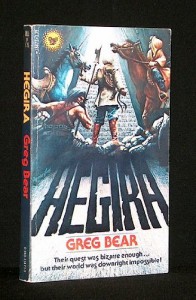
The Book Genie picked an old paperback that I found at a Friends of the Library sale, and I can see why it was a giveaway. I could not last even my usual minimum 50 pages before giving up on this 40 year old Sci-Fi snoozer.
NEXT!
 7
7
 1
1
Year of Wonders ★★★★★

I came to this book by an NPR article discussing pandemic lit. It's a fictionalized tale of the real English town that, struck by plague in 1665, chose to sacrifice themselves by quarantining the town in hopes of preventing the spread of disease to their neighbors.
At least, that's the framework for the story, but the real story is its characters and how they respond to the crisis, how they endure or find strength or break as they lose their neighbors and loved ones. How for some, it's business and opportunism as usual as they use legal means to take a valuable mine from an orphaned child because her dead father can no longer work it or defend it, or price-gouging for grave-digging services when the church graveyard is full and there is a shortage of able-bodied men. How the taverns are always full and the fearful mob inevitably looks for witches to burn.
But it's also the story of neighbors looking out for each other, of a mother rising above the grief of her lost children to care for the dying and deliver the new babies when the doctors flee the town, of the religious leaders look past their fundamental differences to provide leadership to people in need, how a pastor and his wife work tirelessly to minister to the whole town, good or evil of spirit, deserving and undeserving.
There are some odd twists at the end that surprised and angered and disappointed me, but overall the story had me fascinated throughout.
Audiobook via Overdrive, and I strongly recommend you do NOT do this one on audio, because it's read by the author who may be a very good writer but is a terrible narrator, and yet I was so engaged with the story that even her droning voice couldn't put me off.
 14
14
 12
12
Blindsighted ★★★☆☆
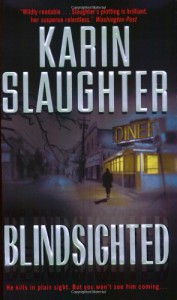
I was initially disappointed with this book. The first couple of chapters had that sort of clumsy and obvious Romance trope of two lovers who had ended things badly but still longed for one another, and I really dislike Romance genre mixed into my mystery-thriller genre. But before long I was thoroughly engrossed in the story and the characters, so much so that I couldn't muster more than an occasional eye-roll for the terribly implausible medical stuff.
It was good! It kept me on the edge of my seat to the very end, even though the plot twist wasn't very twisty. I'm sorry, I realize I'm not making this book sound very good, and objectively I guess there was a lot to complain about, but the author's strength as a storyteller somehow overcomes all those things. I'm looking forward to the next book in the series.
Audiobook via Audible, read by Kathleen Early. She's read almost all the other Slaughter books I've listened to, and I've enjoyed her performances, but for some reason she seemed a little stilted on this one. But I did like it! I don't know why.
 5
5
Year of Wonders - 33%

The narrator is terrible, but the story is very good in spite of it. I'm not sure who she is, because it's uncredited. Maybe it's read by the author?
 4
4
 8
8
Ordinary Grace (DNF) ★★☆☆☆

I gave the audio a full hour, hoping that I'd reach that magical point where you just fall into the story and thoughts about how much longer it was going to go on stop intruding on your consciousness, but it never did. So I finally gave up and moved on to the next book.
Audiobook, picked up on a whim at an Audible $5 sale. Rich Orlow's narration was okay.
 6
6
 5
5
Hello, Happy Sunday, Just Checking In
Howdy everybody. Sorry I've been silent lately, but I've been desperately trying to get through the next pair of books in my Nancy Drew project. I've finished reading and making notes on both, now I just need to match up my notes and put it together in a somewhat coherent comparison. These take up so much mental energy that I just don't have much left over for socializing, but today I'm writing some pending reviews and will catch up on the timeline to see what y'all have been up to.
And my library hold came up, so I can start diving into the text version of Invisible Man now! YAY!
 9
9
Inside Jobs: Tales from a Time of Quarantine ★★★☆☆
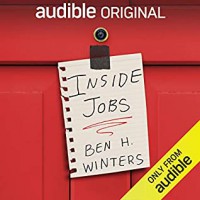
The Crimson Parrot - A genuinely funny take on what happens when the hard-case criminals from classic noir detective novels have to work from home.
The Cape House - fun story progression as the characters reveal themselves
Stop Motion - meh
 5
5

